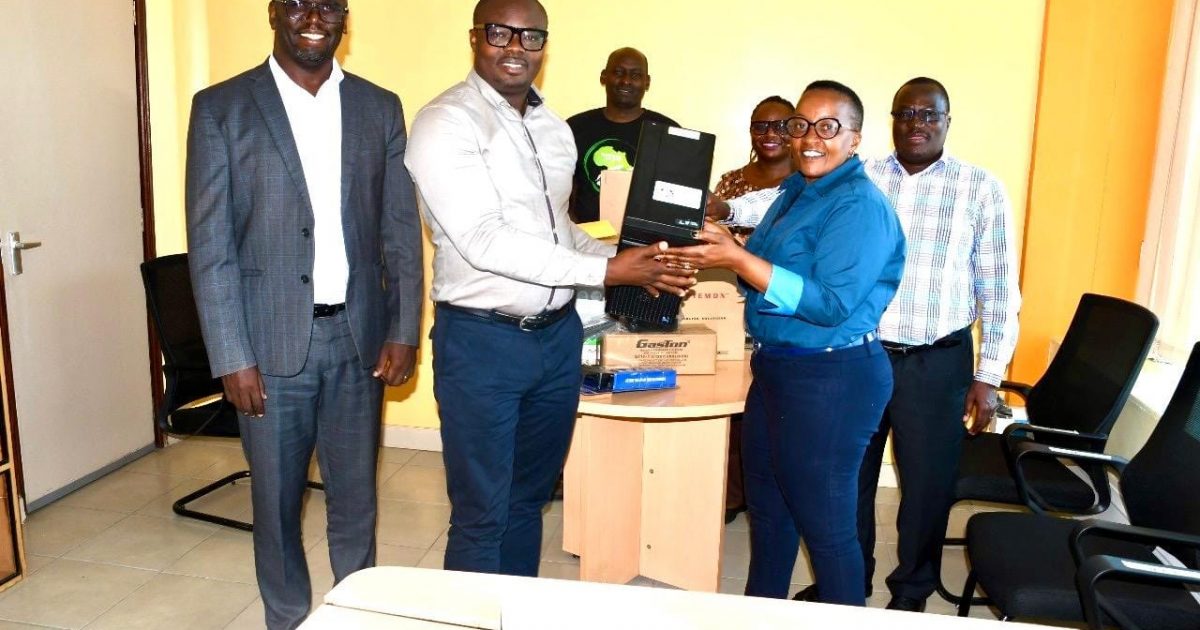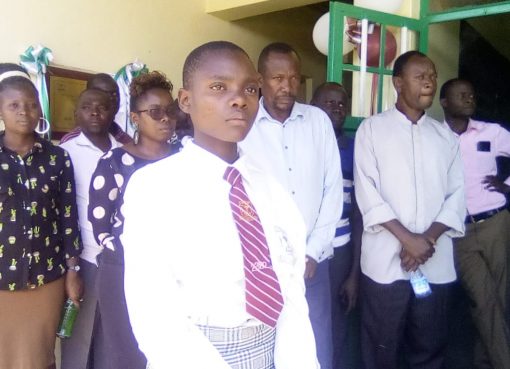A digital revolution has been transforming health care service delivery in Nakuru County, marking a significant leap towards efficiency and transparency.
County Executive Committee Member (CECM) for Health Services Ms Roselyn Mungai revealed that the devolved unit’s administration had embraced cutting edge digital systems in all its operations in the health sector to harness technology for better governance.
“From electronic health records to automated appointment scheduling, the county administration is successfully implementing digitized health systems that streamline patient care, record keeping on patients and availability of drug stocks and overall health care management,” stated the CECM.
Speaking when she received computers, accessories, and cabling, from United States Agency for International Development (USAID) Tujenge Jamii programme to support the ongoing digitization of health service delivery in Nakuru, Ms Mungai said the paperless technology has not only enhanced efficiency of medical practitioners but also significantly improved patient experiences.
“This contribution will enhance Governor Susan Kihika’s administration and commitment to enhance efficiency, improve data management, and streamline service delivery across beneficiary health care facilities,” observed the CECM.
“We continue to advance the governor’s digitization agenda,” Ms Mungai added, emphasizing the county’s commitment to leveraging technology for improved healthcare outcomes.
The CECM indicated that real time data access empowers health officials to make informed decisions promptly leading to more efficient health care delivery in all public hospitals.
She further indicated that Nakuru County has kicked off transition to an electronic Community Health Information System (eCHIS) to boost community health promoters’ (CHPs’) work.
The CHPs will transit from analogue to digital reporting using electronic gadgets after gaining proficiency through technical training.
She stated that over 2,000 CHPs are expected to use the gadgets to aid household registration, patient screening, treatment and referrals and help advocate primary health practices.
“We have been training Community Health Promoters following the successful distribution of tablets, to facilitate the implementation of the digital system. The trainings have been conducted at the ward levels across different community units in all the 11 Sub-Counties,” stated the CECM.
The Electronic Community Health Information System (eCHIS) is a national project that was launched a year ago by the Ministry of Health that comprises a SmartHealth Mobile Phone application, built on Medic’s Community Health Toolkit (CHT) platform.
USAID Country Health Information Systems and Data Use (CHISU) program supports Kenya’s digital health transformation by building up and fortifying the technology, software, and information systems used by the Ministry of Health and everyone working in the health system to deliver more affordable, higher-quality care.
This includes training healthcare workers to collect, analyze, and use data through standardized, unified systems that help them make data-driven decisions about improving healthcare for patients.
“By leveraging technology to its fullest potential, healthcare workers will be able to access real-time patient/community information, track health trends, and identify potential outbreaks promptly,” she said.
Ms Mungai observed that the analogue system was expensive for the county government, rendered data vulnerable and data could easily get lost. But with the digitized system, the official stated, data entry is easy, data can be traced and is credible.
She further cited that digitization of the health system is set to transform the way patient data is collected, managed, and shared, ultimately enhancing healthcare outcomes and improving patient experiences. This comprehensive system not only streamlines administrative tasks, but also fosters seamless communication among Community Health Providers, resulting in more coordinated and personalized care for the community.
In 2022 the County Government rolled out an electronic health register designed to improve collection, storage and analysis of health data, improve data accuracy, increase accountability and bolster the tracking of health trends.
With the technology, patients at the grassroots level can interact remotely with healthcare providers, thus averting costs and inconveniences occasioned by travelling while also ensuring that proper records are kept.
The system dubbed ‘Medical Social Work Service Register’ also collects information that is used by the county government to formulate policy, or take action such as issuing alerts on outbreaks of a diseases, thereby improving response time.
According to the CECM the e-register complements the Kenya Health Information System (KHIS) register at the National and County level and enables physicians and healthcare administrators to easily manage appointment bookings, medical billing, and prescriptions. It also offers better guidelines on healthcare and insurance plans.
Medical Social Work Service Register is also an online database containing information on disease burden by type and location at sub-county level. Likewise, there are specialty-wise medical journal publications bearing extensive information on various disease burdens.
Ms Mungai said technology is vital in Kenya’s effort to achieve universal health coverage.
Technology, she noted, “will be one of the major milestones that will push Kenya and Africa firmly into the future,”
Ms Mungai assured residents that the digitized health system has been designed to guarantee security and confidentiality of their information.
“Privacy is the core concern and we always ensure that we abide by the government’s laws as spelt out in the Data Protection Act. The patient is the centre stage and gives consent to anyone who has access to their digital files,” said the CECM.
By Jane Ngugi





